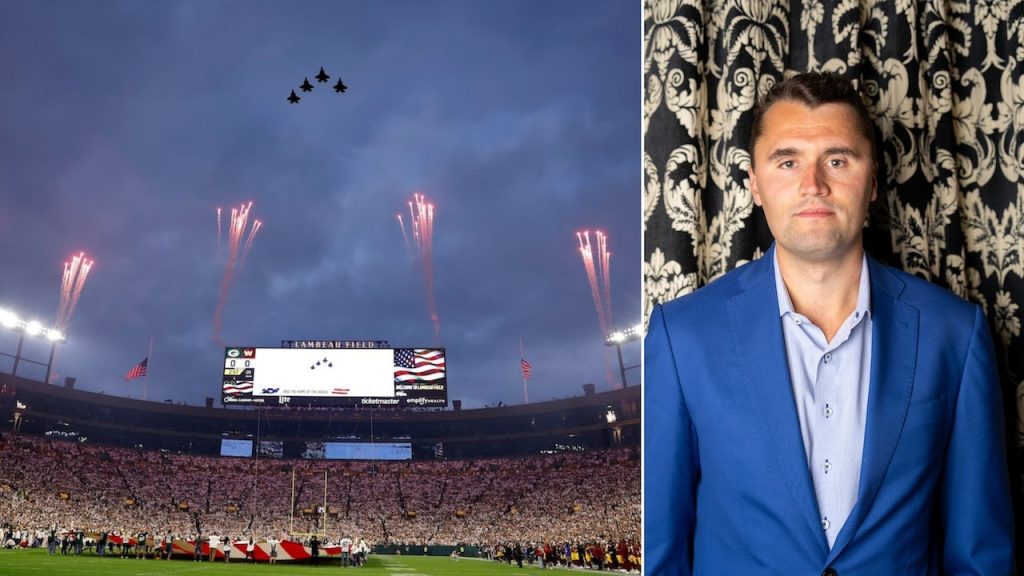NFL Takes Stand on Tributes Following Charlie Kirk Assassination
The NFL has issued a statement addressing how the league will handle tributes to Charlie Kirk following his assassination, leaving decisions about Sunday’s games to individual teams while clarifying its broader approach to honoring those affected by tragedy.
Thursday night’s game between the Green Bay Packers and Washington Commanders featured a moment of silence for Kirk before kickoff, an action the NFL confirmed was a league decision. However, for upcoming Sunday games, the NFL has stated, “It’s up to the clubs,” giving teams autonomy over how they choose to respond. This represents a significant shift in handling such sensitive situations, with the league stepping back from mandating a unified approach across all franchises.
In explaining their tribute policies, the NFL drew parallels to previous moments of silence held after various tragedies including school shootings, attacks on places of worship like the Tree of Life Synagogue in 2018, international incidents such as the Hamas attack on Israel in 2023, and natural disasters. The league also highlighted its tradition of honoring deceased NFL family members, including tributes to players like Damar Hamlin, as well as non-NFL figures like Kobe Bryant and other victims of the helicopter crash that claimed his life. This context demonstrates the NFL’s established precedent for acknowledging significant events that impact American society, regardless of whether they directly involve football.
The statement also acknowledged the evolution of pre-game protocols following George Floyd’s death in 2020, including the performance of “Lift Every Voice and Sing” at league events. The NFL pointed to recent tributes held for victims of various tragedies, including those affected by the attack at the NFL headquarters, the Bourbon Street terrorist attack, deadly crashes near Washington, D.C. and Philadelphia, and wildfires that forced venue changes. These examples illustrate how the league has consistently used its platform to recognize national tragedies while navigating the complex intersection of sports and societal issues.
The assassination has already led to personnel actions within the league, as demonstrated by the Carolina Panthers’ decision to fire communications department member Charlie Rock after social media posts surfaced in which he appeared to question public grief over Kirk’s death. The team’s statement emphasized, “The views expressed by our employees are their own and do not represent those of the Carolina Panthers. We do not condone violence of any kind.” This swift response highlights the high stakes for organizations and individuals when responding to politically charged events in today’s media environment.
Other sports leagues have taken varying approaches to honoring Kirk, with MLB instructing all teams to fly American flags at half-staff throughout the weekend in accordance with the White House Presidential Proclamation. The New York Yankees and Chicago Cubs independently held moments of silence at recent games. Meanwhile, the NHL, NBA, and WNBA had not issued official statements addressing Kirk’s assassination at the time of reporting, highlighting different organizational approaches to navigating this tragic event. As American sports continue to intersect with political events, leagues must carefully balance respecting national mourning while considering their diverse fan bases and organizational values.


